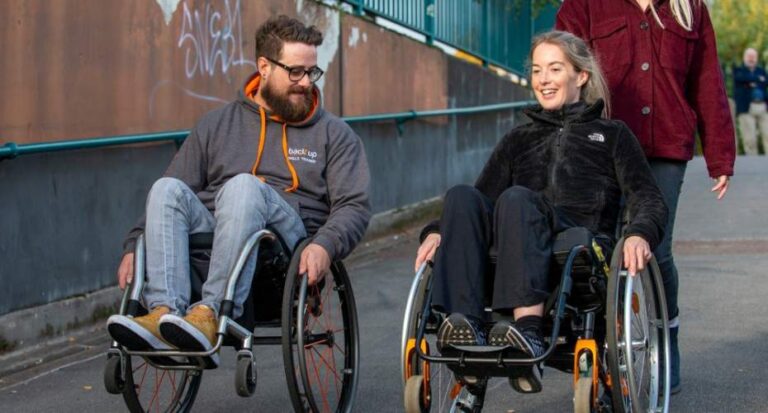There is a huge pool of talent you are almost certainly overlooking.
Unemployment is rising, while vacancies remain unfilled. Meanwhile this pool of talent could be driving your organisations and businesses forward.
There are 16million disabled people in the UK, according to the DWP. The disability employment rate was 53.6% in Q2 2023, compared to 82.5% for non-disabled people.
Yet 6 in 10 graduates with a visual impairment are not in full-time employment, and only 1 in 3 autistic graduates is in work.
And yet, studies show when disabled people are recruited for the right job and are given responsibility, they often outperform other employees, with higher levels of efficiency, productivity, accurateness, commitment, loyalty, and satisfaction. But for many disabled people there are challenges when staying in work such as accessing reasonable adjustments and the Access to Work scheme.
Employers can do much to support their disabled employees to ensure they do not face a culture of negative attitudes and discrimination, but are offered work patterns that provide two way flexibility and human-centric sick pay and return to work process issues. Interestingly, government research shows disabled employees are more likely to be working for small employers and less likely to be working for a large employer.
How do we breach this divide? It may sound like a complex one to crack, but the solutions are shockingly simple, provided there is the will to implement them.
Getting recruitment right
Shaw Trust research shows simple steps such as ensuring all job application processes are accessibly designed and implemented opens up talent pools.
To streamline processes recruiters have pushed recruitment online – but unless you have tested your online application for accessibility it is highly likely this, like screening apps that gameify the initial assessment, will be inaccessible. We know when we use algorithms to determine success or failure we miss nuance and devalue the additional skills needed to be successful in a role.
And disabled employees bring additional skills honed by negotiating an inaccessible world. The necessity to project manage every journey, react and adapt when plans change, know when – and how – to ask for support.
As employers, organisations and businesses we need to look at our practices if we want to encourage talent to join us. We cannot assume a disabled candidate won’t be the right fit – we must look at how we ensure everyone can contribute. Make our recruitment processes open to all by ensuring online processes are accessibility tested and, most importantly, ask ‘What can we do to help you do this job well?’
Disability Power 100
On November 8, Shaw Trust hosted the eighth Disability Power 100 awards. Recognising and celebrating the most influential disabled people living and working in the UK – exceptional individuals who are sector trailblazers in their own right. We do this because we all, as individuals and organisations, need to make sure we are addressing the structural and systemic issues which have simpler solutions than you might think.
Winner, Dr Shani Dhanda, commented “I really hope that non-disabled people are taking note and stop having low expectations of us.” A sentiment echoed by No.2 Victoria Jenkins who said “Disabled people are getting recognised more and more for what we are doing outside of these spaces because people are waking up to how talented the disabled community is.”
As organisations we have a role to play, not least so we can benefit from a vast and largely untapped pool of talent.




